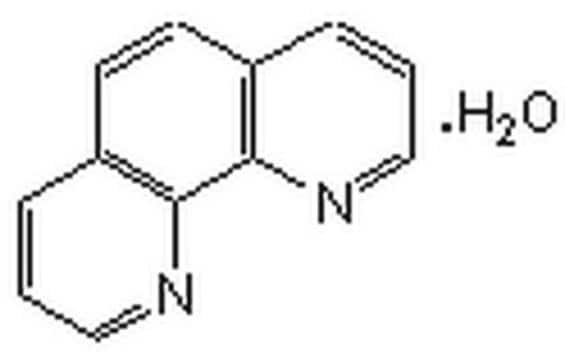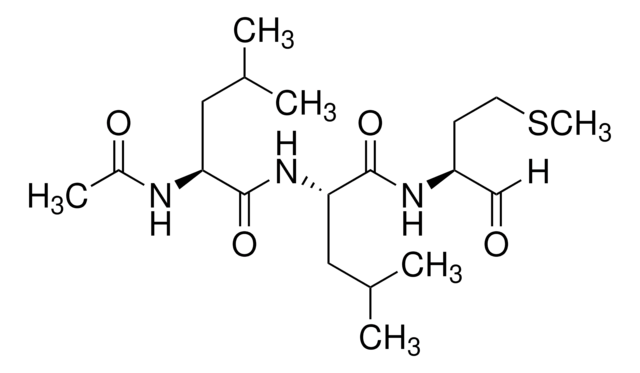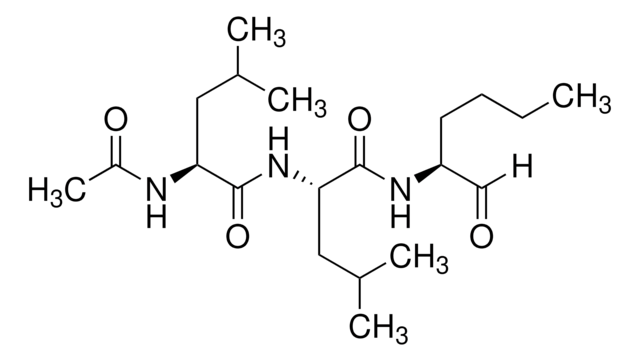33510
1,10-Phenanthroline monohydrate
redox indicator, ACS reagent, puriss. p.a., ≥99.5% (calc. to the dried substance)
Synonym(s):
o-Phenanthroline monohydrate
About This Item
Recommended Products
product name
1,10-Phenanthroline monohydrate, ACS reagent, puriss. p.a., ≥99.5% (calc. to the dried substance), for redox titration
grade
ACS reagent
puriss. p.a.
Quality Level
Assay
≥99.5% (calc. to the dried substance)
8.5-9.5% water basis
technique(s)
titration: suitable
impurities
8.5-9.5% water
ign. residue
≤0.05% (as SO4)
mp
100-104 °C (lit.)
97-102 °C
suitability
passes test for iron detection
passes test for redox indicator
SMILES string
O.c1cnc2c(c1)ccc3cccnc23
InChI
1S/C12H8N2.H2O/c1-3-9-5-6-10-4-2-8-14-12(10)11(9)13-7-1;/h1-8H;1H2
InChI key
PPQJCISYYXZCAE-UHFFFAOYSA-N
Looking for similar products? Visit Product Comparison Guide
General description
Application
Biochem/physiol Actions
Signal Word
Danger
Hazard Statements
Precautionary Statements
Hazard Classifications
Acute Tox. 3 Oral - Aquatic Acute 1 - Aquatic Chronic 1
Storage Class Code
6.1C - Combustible acute toxic Cat.3 / toxic compounds or compounds which causing chronic effects
WGK
WGK 3
Flash Point(F)
Not applicable
Flash Point(C)
Not applicable
Personal Protective Equipment
Regulatory Listings
Regulatory Listings are mainly provided for chemical products. Only limited information can be provided here for non-chemical products. No entry means none of the components are listed. It is the user’s obligation to ensure the safe and legal use of the product.
JAN Code
33510-6X5G:
33510-5G:
33510-25G:
33510-VAR:
33510-BULK:
33510-6X25G:
Choose from one of the most recent versions:
Already Own This Product?
Find documentation for the products that you have recently purchased in the Document Library.
Customers Also Viewed
Our team of scientists has experience in all areas of research including Life Science, Material Science, Chemical Synthesis, Chromatography, Analytical and many others.
Contact Technical Service













